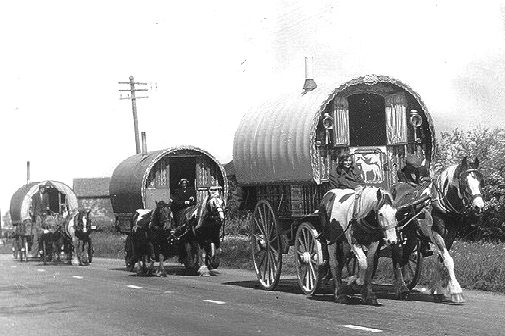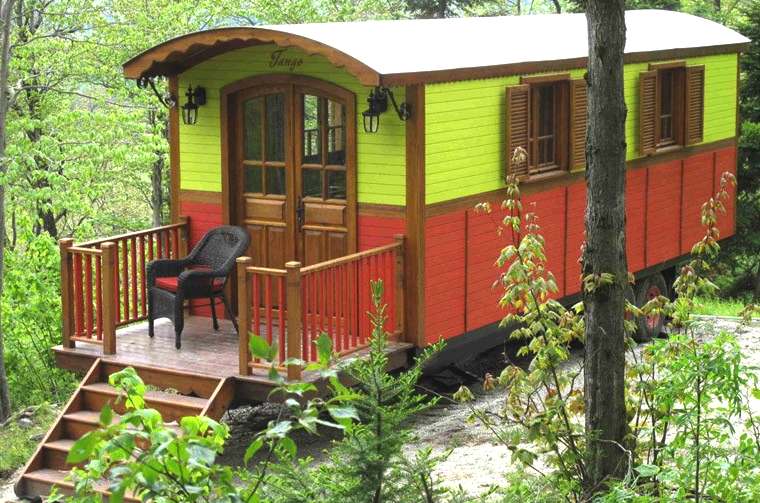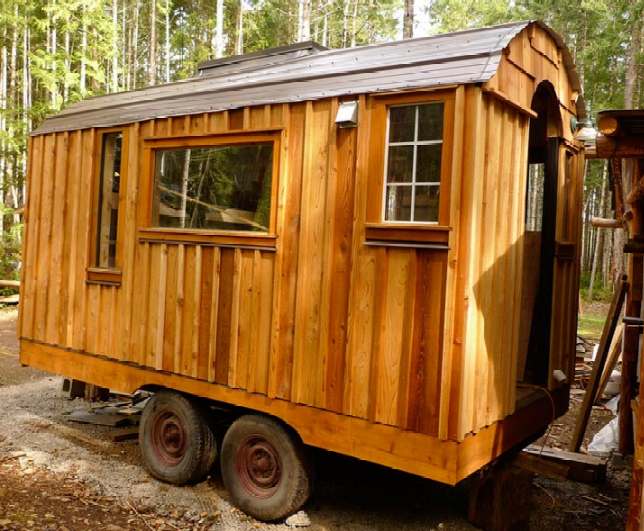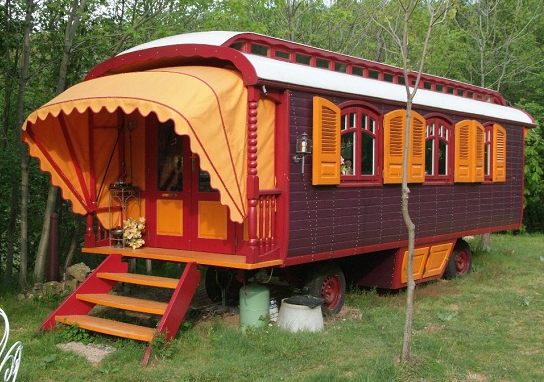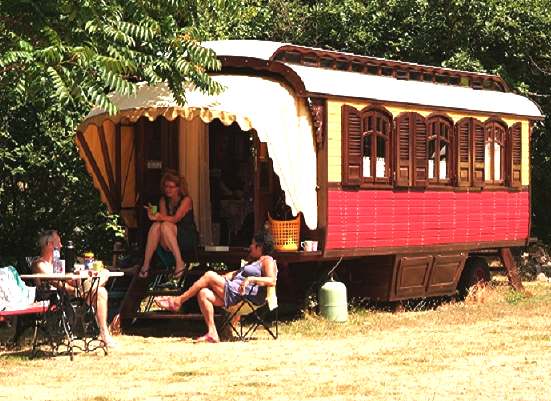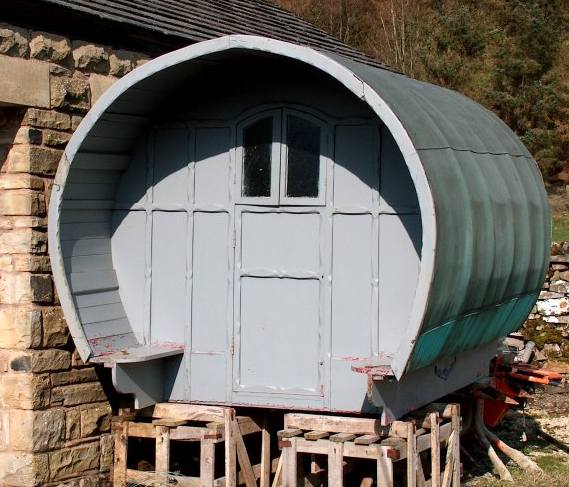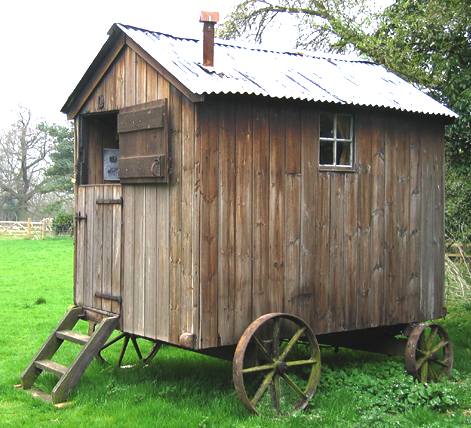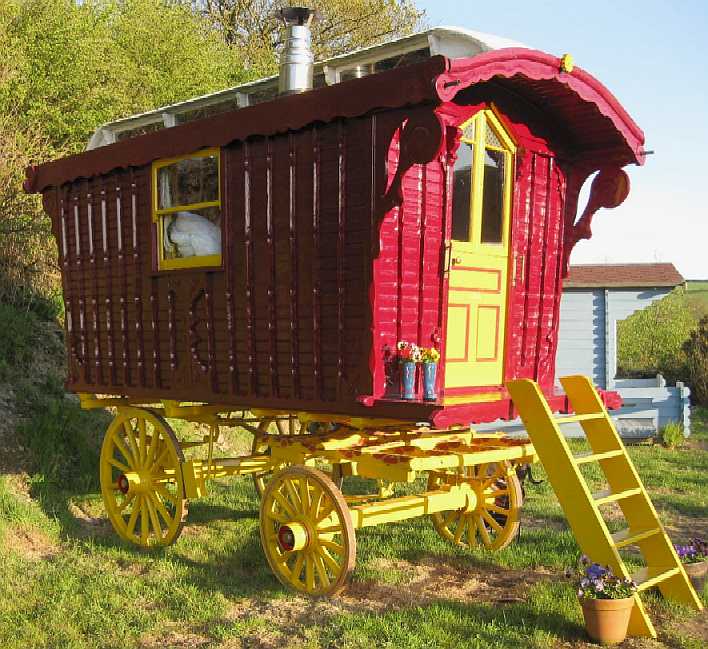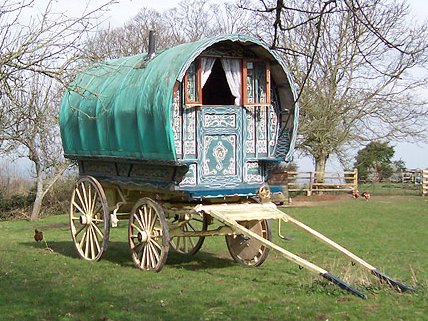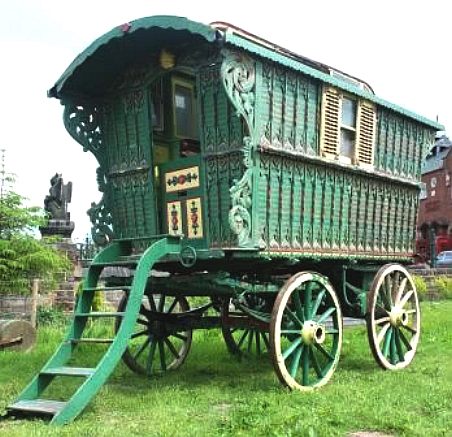|
GYPSY WAGONS - SUSTAINABLE MOBILE HOMES
|
|
|
AFFORDABLE & SUSTAINABLE
These folks lead a truly sustainable lifestyle and we should take out hat off to the development of affordable mobile wagons that minimize a person's carbon footprint.
DEFINITION
The English term gipsy or gypsy originates from the Middle English gypcian, short for Egipcien. It is ultimately derived from the Greek Αἰγύπτιοι (Aigyptioi), via Middle French and Latin. It was once believed that the Romanies, or some other Gypsy groups (such as the Balkan Egyptians), originated in Egypt, and in one narrative were exiled as punishment for allegedly harbouring the infant Jesus.
Encarta tells us that the Roma are divided into groups sometimes referred to as nations or tribes. These divisions generally reflect historical patterns of settlement in different geographic areas. The European tribes include the Calé of Spain, Finland, and Wales; the Sinti of Germany and central Europe; the Manouche of France; the Romanichals of the United Kingdom; the Boyash of Romania; and the Roma, a subgroup of the larger Roma population, of Eastern Europe and the Balkans. Although historically renowned as wanderers, the vast majority of modern Roma live in settled communities. They are often referred to as Gypsies, Travellers, or Romany folk.
'Gipsy/gipsy' is a common word used to indicate Romani people, Tinkers and Travellers. It may or may not be considered to carry pejorative connotations by those so described, and use of the word "Gipsy" in English is so pervasive (and is a legal term under English law—see below) that many Romani organizations use it in their own organizational names.
EUGENICS
There is little doubt that council's across the UK have not provided for nomads and have embarked on a campaign to prevent settling, despite council failures. The conclusion can only be that many council's have an agenda to eradicate traveling people from their geographical region - a modern day form of the extreme Nazi eugenics from 1939. Yet, this lifestyle, if adopted more widely has the potential to reduce housing shortages and end financial slavery. Council officials may not like to hear that, but it is true.
Sadly, history has seen the Gypsies persecuted for many reasons. Their roaming lifestyle caused them to always be the outsiders, belonging to no country. They were often viewed as vagabonds roaming the countryside looking to make a quick buck. Additionally their close knit, secretive behavior often caused fear and misunderstanding in those not of the Gypsies. Generations of Gypsies have endured persecution by the gaje (not of the Rom/Gypsies) as a result of their aura of strangeness.
Political leaders have historically branded Gypsies as undesirables, making them scapegoats for local problems. In the past it was common place for anyone who gave them refuge to be punished, anyone who killed a Gypsy could keep his property, any local authority who did not arrest the Gypsies in his area would have to pay for any damage they did.
Affordable and sustainable - nice examples of traditional Gypsy wagons in natural renewable wood
VILLAGES OF THE FUTURE
It is proposed that: 1. self build cooperatives, 2. Local authority housing and 3. Social landlord schemes
could base their business models on the following 100 unit village development:
COUNCILS BEHAVING BADLY
In May 2012, the Government highlighted that 232,000 new households are forming in England each year, but this new research has revealed that local authorities in England have now reduced their housing targets to around 160,000 per annum, a reduction of 13% from the Regional Spatial Strategies (RSS) housing target set for England. This equated to around 185,000 new homes per year, revealing a large discrepancy between the three figures of over 70,000 homes.
JOIN IN
Join us in the drive for a green economy. Email or call to register your interest in these exciting sustainable developments for a better Britain. We are actively seeking development partnerships with a view to forming a consortium concerning bids for European, Canadian and other international research funding grants.
LINKS
http://www.tumblr.com/tagged/alternative%20housing http://humble-homes.com/rollottes-european-style-gypsy-caravans/ http://www.cabinzoom.com/2009/07/romantic-gypsy-caravan/ http://www.evimguzelevim.net/ahsap-karavan/ http://www.bigskygypsy.com/Gypsy%20History.htm
|
|
|
This website is Copyright © 2013. All rights reserved. All other trademarks are hereby acknowledged. Contact Us www.cherrymortgages.com |
